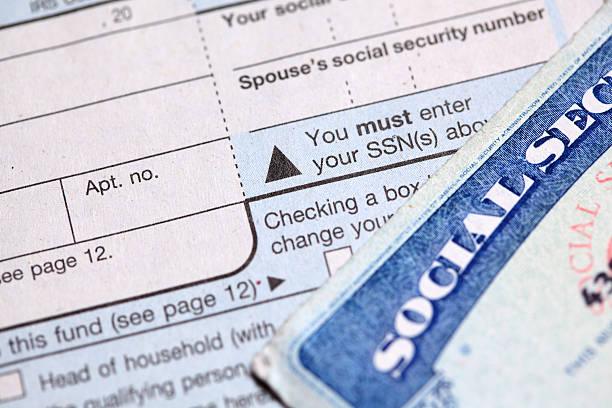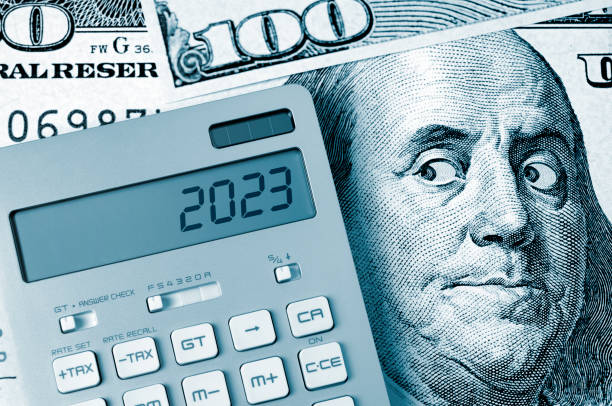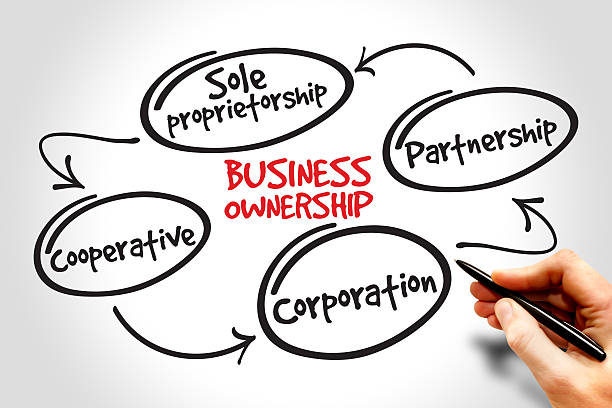As a business owner, it’s essential to keep track of various identification numbers, including your Employer Identification Number (EIN).
This unique nine-digit number is assigned to your business by the Internal Revenue Service (IRS) and is used to identify your company for tax purposes. If you’re starting a new business or have misplaced your EIN, don’t worry.
There are several ways to find your EIN, including free EIN lookup tools. In this article, we’ll explore the different ways to find your business tax ID number and provide tips for maintaining it.
What is an EIN?
Before we dive into how to find your Tax ID Number (EIN), let’s first understand what it is and why it’s important. As mentioned earlier, an EIN (Employer Identification Number) is a nine-digit number assigned by the IRS to identify your business for tax purposes.
It’s like a social security number for your business. You’ll need an EIN if you have employees, operate as a partnership, corporation, or LLC, or if you file certain tax returns.
Why is Your EIN Important?
Your EIN is essential for a variety of reasons, including:
- Filing taxes: You will need your Tax ID Number (EIN) to file federal and state taxes for your business.
- Hiring employees: If you plan on hiring employees, you will need an EIN to report employment taxes to the IRS.
- Opening a business bank account: Most banks require an EIN to open a business bank account.
- Applying for business credit: Your EIN is often required when applying for business credit or loans.
- Identifying your business: Your EIN helps to identify your business for tax and legal purposes.
How to Find Your Business Tax ID Number (EIN)
Now that you understand the importance of your Tax ID Number (EIN) let’s explore the different ways to find it.
Check Your EIN Confirmation Letter
The first place you should check for your EIN is the confirmation letter you received from the IRS when you first applied for it. This letter typically contains your EIN, the legal name of your business, and the date your EIN was assigned. If you cannot locate this letter, don’t worry. There are other ways to find your EIN.
Related: How To Verify Your Employer Identification Number (EIN)
Old Federal Tax Returns
If you have filed federal tax returns in the past, your Tax ID Number (EIN) should be listed on those returns. Check your old tax returns to see if your EIN is included. If you have electronic copies of your tax returns, you can use the search function to quickly find your EIN.
Official Tax Notices from the IRS
If you have received any official tax notices from the IRS, your Tax ID Number should be listed on those notices. These notices could include a notice of tax due or a notice of audit. Check any official notices you have received from the IRS to see if your EIN is listed.
Business Licenses and Permits and Relevant Applications
If you have applied for any business licenses or permits, your EIN may be listed on those applications. For example, if you applied for a business license from your city or county, your EIN may be listed on the application. Check any relevant business applications you have submitted to see if your EIN is listed.
Business Bank Account Statements or Online Account Profile
Your Tax ID Number (EIN) may also be listed on your business bank account statements or your online account profile. Check your bank statements or your online account to see if your EIN is listed.
Old Business Loan Applications
If you have applied for any business loans in the past, your EIN may be listed on those loan applications. Check any old business loan applications you have submitted to see if your EIN is listed.
Your Business Credit Report
Your EIN may be listed on your business credit report. You can request a copy of your business credit report from any of the three major credit reporting agencies (Equifax, Experian, and TransUnion) to see if your EIN is listed.
Payroll Paperwork (Such as 1099 Forms)
If you have employees, your Tax ID Number (EIN) should be listed on any payroll paperwork you have filed. This could include 1099 forms, W-2 forms, or any other payroll paperwork you have submitted to the IRS.
Call the IRS to Locate Your EIN
If you have tried all of the above methods and are still unable to find your EIN, you can call the IRS to request assistance. The IRS has a toll-free number for business owners to call for help with EIN-related issues. The number is 1-800-829-4933, and it is available Monday through Friday from 7 a.m. to 7 p.m. local time.
How to change or cancel an EIN
If you need to change or cancel an EIN (Employer Identification Number) for your business, there are specific steps that you need to follow.
An EIN is a unique identification number assigned to a business by the IRS, and it’s essential to keep this number up-to-date and accurate. Here’s what you need to know about changing or canceling an EIN.
Changing an EIN
If you need to change your EIN, you will need to contact the IRS Business & Specialty Tax Line at 1-800-829-4933. The representative will ask you several questions to verify your identity and may request additional information to process the request. You will need to provide a valid reason for changing the EIN, such as a change in ownership, a change in business structure, or a change in the legal name of the business. Once the IRS approves your request, they will issue a new EIN for your business.
Canceling an EIN
If you need to cancel an EIN, you will also need to contact the IRS Business & Specialty Tax Line at 1-800-829-4933. The representative will ask you several questions to verify your identity and may request additional information to process the request. You will need to provide a valid reason for canceling the EIN, such as if the business is no longer in operation, if it was assigned in error, or if the business has merged with another entity. Once the IRS approves your request, they will cancel the EIN, and you will no longer be able to use it.
Important Considerations
It’s important to note that changing or canceling an EIN is not a simple process, and it should not be done lightly. You should consult with a tax professional or attorney before making any changes to ensure that you are making the best decision for your business. Additionally, changing or canceling an EIN can have significant implications for your tax and financial obligations, so it’s essential to understand these implications before making any changes.
Tips to Keep Your Tax ID Number (EIN) Secure
As a business owner, it’s important to keep your Tax ID Number (EIN) secure. Your EIN is a unique identifier assigned by the IRS and is used for tax and other business purposes.
If your EIN falls into the wrong hands, it can be used for fraudulent activities, which can cause significant damage to your business. Follow these some tips to keep your EIN secure:
Limit Access to Your EIN
One of the most effective ways to keep your Tax ID Number secure is to limit access to it. Only provide your EIN to trusted parties, such as your tax preparer, bank, or employees. You should never share your EIN with anyone who does not have a legitimate reason to know it. Also, be cautious about who you provide your EIN to. Always verify the identity of the person or organization that is requesting your EIN before providing it.
Keep Your EIN in a Secure Location
It is essential to keep your EIN confirmation letter and any other documentation that contains your EIN in a secure location. This could be a locked filing cabinet or safe. If you keep your EIN in a digital format, ensure that you have password-protected access to the document. Do not leave your EIN confirmation letter lying around in plain sight or in an unsecured location, such as your car or office desk.
Be Cautious of Phishing Scams
Phishing scams are a common way for scammers to obtain personal information, including your EIN. Be cautious of any emails or phone calls that ask for your EIN or other sensitive information. If you receive an email or phone call that you suspect is a phishing scam, do not provide any information. Instead, verify the identity of the sender or caller and report the incident to the IRS.
Monitor Your Credit Report
Regularly monitoring your business credit report can help you detect any unauthorized activity or potential identity theft. You can request a free credit report from each of the three major credit reporting agencies once a year. Review your report carefully for any inaccuracies or unauthorized activity. If you suspect that your EIN has been compromised, you can request that the credit reporting agencies place a fraud alert on your credit report.
Update Your Information
If there are any changes to your business, such as a change of address or business name, make sure to update your EIN information with the IRS. Keeping your EIN information up-to-date can help prevent any delays or errors when filing your taxes or other paperwork.
Use Encryption
If you are sending sensitive information, such as your EIN, over the internet, use encryption to keep it secure. Encryption is the process of converting information into a code to prevent unauthorized access. There are many encryption tools available that can help you keep your information secure.
Train Your Employees
If you have employees, it is essential to train them on the importance of keeping your EIN secure. Make sure they understand the risks of identity theft and the potential consequences of a data breach. Provide them with clear guidelines on how to handle sensitive information, including your EIN.
Use Two-Factor Authentication
Two-factor authentication is a security feature that requires users to provide two forms of identification before accessing an account or system. Using two-factor authentication can help prevent unauthorized access to your EIN and other sensitive information.
Conclusion
Finding your business tax ID number or EIN is crucial for various reasons, including filing taxes, opening business bank accounts, and hiring employees.
There are several ways you can find your EIN, including checking your EIN confirmation letter, old federal tax returns, official tax notices from the IRS, business licenses and permits, business bank account statements, old business loan applications, your business credit report, and payroll paperwork. If you have exhausted all these options, you can call the IRS for assistance.
Remember, once you have located your EIN, it’s essential to keep it secure. Only share it with trusted parties, and avoid sharing it through unsecured channels such as email or text message. With this information, you can confidently find your business tax ID number and focus on growing your business.



